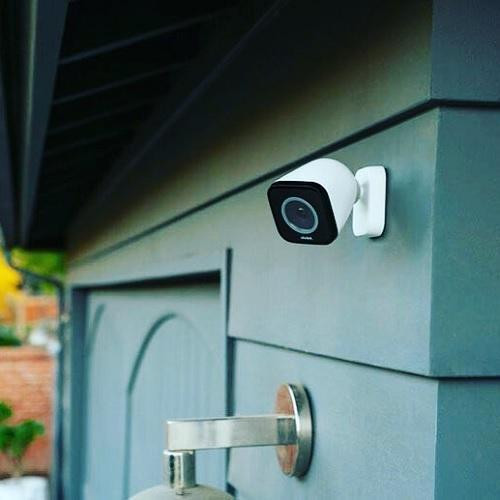
When it comes to protecting your home or business, security cameras are a crucial line of defense. However, with numerous options on the market, a common question arises: should you go with wired or wireless security cameras? To help you decide, we'll break down the pros and cons of each type, their suitability for different users, and which might be the better fit for your needs.
What Are Wired and Wireless Security Cameras?
Before jumping into the comparison, it’s essential to understand how these two types of cameras work:
- Wired Security Cameras connect to a recorder or monitor via physical cables. These systems often rely on Ethernet or coaxial cables for both power and video signal transmission.
- Wireless Security Cameras, on the other hand, transmit footage using Wi-Fi or other wireless technology. They’re usually powered by batteries or a power adapter but don’t require physical cables for video transfer.
Both serve the same purpose but differ significantly in installation, functionality, and maintenance.
Wired Security Cameras
Pros:
1. Reliable Connection:
Wired setups aren’t vulnerable to Wi-Fi dropouts or interference. This makes them a strong choice for environments where network reliability fluctuates.
2. High-Quality Footage:
Wired cameras generally provide high-resolution video without the risk of compression-related quality loss.
3. No Batteries Needed:
Since these cameras are directly powered via cables, you won’t have to deal with changing or recharging batteries.
4. Secure Data:
With no dependency on Wi-Fi, wired systems are less prone to hacking, offering increased data security.
Cons:
1. Complex Installation:
Installing wired cameras involves running cables through walls, ceilings, or underground, which can be time-consuming and expensive. For older buildings, it may even require professional help.
2. Lack of Flexibility:
Once installed, it’s challenging to move cameras without rerouting cables.
3. Power Dependency:
Wired systems rely on the power grid, so they stop working during power outages unless paired with a backup source.
Best For:
- Homeowners or businesses looking for long-term, stable coverage.
- Buildings under construction or major renovation, where laying cables is simpler.
Wireless Security Cameras
Pros:
1. Easy Installation:
Wireless cameras are straightforward to install, often requiring minimal tools. This makes them ideal for DIY enthusiasts.
2. Flexibility:
Cameras can be placed just about anywhere within the range of your Wi-Fi network.
3. Portability:
Since they aren't tethered to cables, wireless cameras can easily be relocated.
4. Smart Features:
Many wireless cameras come with advanced features, such as cloud storage, remote access, and integration with smart home ecosystems (e.g., Alexa or Google Assistant).
Cons:
1. Signal Interference:
These cameras rely on Wi-Fi, which can be disrupted by network congestion, walls, or distance from the router.
2. Battery Maintenance:
Battery-powered cameras require regular charging or replacements, which can be inconvenient.
3. Data Security Risks:
Wireless connections can be more vulnerable to cyberattacks or hacking compared to a wired system.
4. Potential Monthly Costs:
If cloud storage is required, there might be extra ongoing expenses to consider.
Best For:
- Small businesses or homeowners seeking an easy and flexible setup.
- Renters who can’t modify the property by running cables.
Factors to Help You Decide
To choose between wired and wireless security cameras, consider these key factors:
1. Property Size and Layout
·
o
- Wired cameras are ideal for larger spaces or properties where cables can be installed during renovation.
- Wireless cameras are better suited for smaller spaces with a good Wi-Fi connection.
2. Budget
·
o
- Wired systems may involve a higher upfront cost due to installation, but they don’t require ongoing battery purchases or cloud storage subscriptions.
- Wireless systems are generally more affordable to start with but can have recurring costs.
3. Technical Expertise
·
o
- Wired cameras may require professional installation.
- Wireless systems are easier for non-tech-savvy users to set up.
4. Connectivity
·
o
- If your area experiences frequent power outages or poor Wi-Fi, wired cameras provide a more stable option.
- On the other hand, wireless cameras’ portability can be a plus when moving homes or offices.
5. Aesthetic and Maintenance
·
o
- If you prefer a clean aesthetic with hidden cables, professional wired setups are great, albeit labor-intensive.
- Wireless systems avoid cable clutter but require frequent battery checks.
Final Verdict: Which Is Better?
There’s no one-size-fits-all answer. Both wired and wireless security cameras have strengths and weaknesses depending on your specific needs.
- Choose Wired if reliability, long-term security, and high-resolution footage are priorities for your home or business.
- Choose Wireless if you value flexibility, easy installation, and smart features that can integrate with existing home systems.
Take the Next Step
Still unsure which option works best? Assess your unique requirements, budget, and property type before making a decision. Security is a critical investment, and choosing the right camera system ensures peace of mind.
Have questions about security camera setups? Share them in the comments below, and we’ll be happy to help!
Learn more about security camera installation with Connextec in Charlotte, NC.
Author Description: Connextec is a technology solutions company based in Charlotte, NC, specializing in cutting-edge IT services and support for businesses of all sizes. With a focus on innovation and efficiency, Connextec delivers tailored solutions to enhance productivity and secure digital operations.